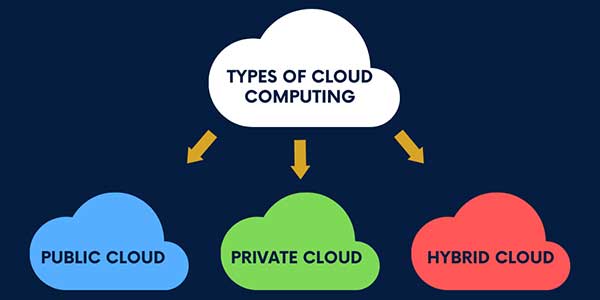
In today’s digital world, cloud computing is playing an important role. This technology is becoming increasingly popular and today almost every business is moving towards adopting it. But why? Let us know in detail the reasons behind the increasing popularity of cloud computing and its need for businesses.
Table of Contents
Importance Of Cloud Computing
Cloud computing means accessing data and applications via the Internet, rather than having everything on a local server or computer. This technology has made IT resources more accessible and effective. This not only reduces costs but also provides data security and flexibility.
Why Is Cloud Computing Gaining Popularity?
1.) Cost Reduction:
Traditional IT infrastructure requires huge investment and cost – hardware, software, maintenance, and updates. Outsourcing cloud computing services reduces all these expenses because companies pay only for the resources they use.
2.) Flexibility And Scalability:
Cloud services are easily scalable, meaning you can increase or decrease the resources as per your need. This is especially beneficial for businesses that are rapidly growing or have fluctuating demand.
3.) Redundancy And Reliability:
Cloud providers often have a network of multiple data centres, ensuring data redundancy and reliability. If one server experiences a problem, data and services remain available from other servers, ensuring business continuity.
4.) Convenient Access:
Users Can Access their crucial data from anywhere, there is no need for any specific location and any time they can access their data. This encourages remote work and team collaboration, which help to improve protectivity and data flexibility.
5.) Security:
Cloud service providers typically provide advanced security measures like data encryption, multi-factor authentication, and regular security updates. This ensures that your data receives high-level security.

Types Of Public Cloud Computing:
It makes your services and resources publicly available. Major cloud service providers such as Amazon Web Services (AWS), Microsoft Azure, and Google Cloud Platform (GCP) fall into this category. These services provide you with massive resources and scalability.
- Public Cloud: A public cloud is a cloud service model in which resources and services are publicly available. These are operated and managed by a third party, and multiple clients (or multi-tenants) have to share the same cloud infrastructure.
Private Cloud: It consists of cloud infrastructure specifically for a single organization. It is more suitable from the point of view of security and control, especially for companies that handle sensitive data.
Hybrid Cloud: It is a combination of public and private cloud. In this, businesses keep some services and data in the private cloud and run other services on the public cloud. It is a good combination of flexibility and safety.
Steps To Adopt Cloud Computing:
Evaluate your business’s technical needs and see which cloud services would best suit you.
- Choose the right cloud provider: Compare services, prices, and features from different cloud providers. Make sure the provider meets your security and quality of service requirements.
- Creating a migration plan: Prepare a solid one before moving to the cloud. This should include plans for data transfer, moving applications to the cloud, and training employees.
- Pay attention to safety measures: Cloud security is an important aspect. Make sure your cloud provider has high standards for data security, privacy, and safety.
- Continuous monitoring and management: After you start using cloud services, monitor and manage them regularly. This will help you ensure better performance and safety.
Why Do Businesses Need To Adopt Cloud Computing Services?
- Competitive Advantages: Cloud computing helps your business stay up-to-date with rapidly changing technology. This allows you to stay ahead of your competitors.
- Customer Experience: With the help of better and faster software, you can provide the best experience to your customers. As a result, customer satisfaction and trust are improved.
- The saving of time: Through cloud computing, you can save time on solving technical problems and taking care of IT infrastructure. This allows you to focus on your main business tasks.
- The digital transformation: Cloud computing helps businesses digitally transform, enabling them to adopt new business models and processes.

 About the Author:
About the Author:
















Be the first to write a comment.